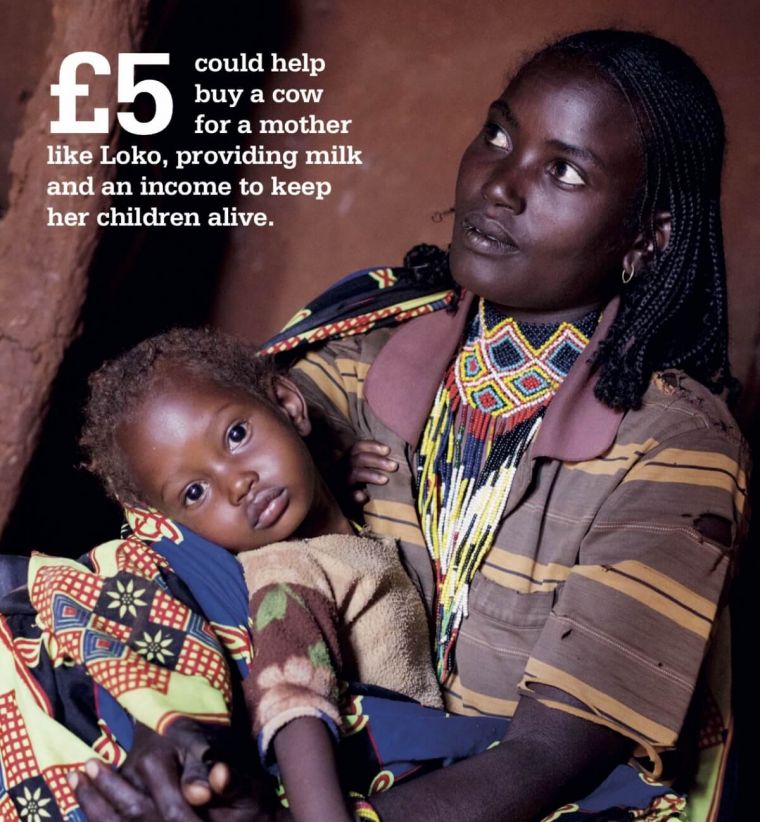Donations to Christian Aid fall: Charities face 'perfect storm'

In what may be a sign of troubled times ahead for charities, Christian Aid's income fell by four per cent last year.
Analysed by Third Sector magazine, its latest accounts show that the annual Christian Aid Week fundraising appeal, supported by thousands of churches around the country, raised less than previous years, falling by £600,000 to £11.1 million. Overall, donations income was down by four per cent.
The greatest fall, however, was in the amount received from institutional contracts in which Christian Aid receives funding to carry out particular pieces of aid work; this fell by 13 per cent. The charity's total income was £99.9m in the year to 31 March 2015, compared with £103.6m in the previous year.
At £15 million, the charity's reserves also showed a shortfall of £5 million against its target of £20.3 million. There is also a relatively small deficit of £5.9m on its final-salary pension scheme.
However, despite the below-par returns from Christian Aid Week, the charity's Christmas appeal exceeded expectations. It raised £3.6m in 2014, £2.1m more than the previous year.
In the charity's annual report, chief executive Loretta Minghella says: "Despite the record-breaking success of the Christmas appeal, the enormous generosity of our supporters and our continuing track record in securing and successfully completing large-scale government-funded contracts, our income was less than we had planned for, particularly from Christian Aid Week.
"We are beginning to implement new approaches now, as we learn from the success of our Christmas appeal, and with a focus on better use of digital communications."
The chief executive of another Christian charity, Embrace the Middle East, has warned that UK charities face "an almost perfect storm" in 2016.
Jeremy Moodey wrote in a blog post of the increasing calls on charities' help because of the scaling back of welfare support in the UK and war and refugee crises abroad. "Charities are needed more than ever. Yet on the other hand the environment in which they have to work is becoming increasingly difficult," he said.
Referring to a recent survey showing a decreasing level of public trust in charities, he said: "Their credibility with donors has sunk to unprecedented levels, their executives have become the new 'fat cats', and their ability to raise funds is likely to be severely constrained by government regulation."
Moodey says that the latter issue is likely to prove the most serious. He is particularly critical of the government's proposal to introduce a Fundraising Preference Service (FPS) which could enable people to opt out of all charity fundraising communications, whether by telephone or mail. "This could devastate the UK non-profit sector," he said, and would particularly impact smaller charities. "The risk is that the bigger charities with more aggressive fundraising strategies will continue to over-mail potential supporters who will then in desperation sign up for the FPS and thus inadvertently prevent smaller and less aggressive charities, including those they currently support, from ever contacting them."
Moodey concludes: "Yes, some charities (particularly the bigger ones) need to raise their game. But the longer-term consequences of the government's actions for civil society organisations in this country, including faith-based charities such as Embrace, could be catastrophic."











